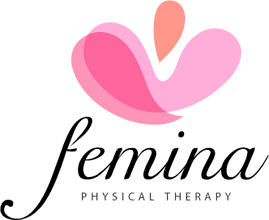Self-Care and Self-Management Strategies to Combat Endometriosis Symptoms During the COVID-19 Pandemic
Since March of 2020, people living with endometriosis symptoms are facing tough challenges and barriers due to the Covid-19 pandemic: canceled surgeries, canceled appointments with family physicians, gynecologists, fertility specialists and/or other allied healthcare providers, postponed in-office assessments and visits, and changes in overall work environment and social activities. This can worsen feelings of isolation, depression, anxiety, hopelessness, and have a negative impact on self-reported pain and disability levels during this time.
How you respond or adapt to a stressor or illness depends on how you think about the situation, the actions you take, and behaviors or changes you implement in response to the demand of the situation. This problem-focused strategy for understanding response to stress and illness explains that problem-solving, information-seeking, acceptance, seeking support, and planning, allow one to more effectively cope with the ongoing stresses of living with endometriosis symptoms in light of added challenges due to the pandemic (Kvillemo and Bränström (2014)).
On the other hand, coping strategies that are maladaptive (focus attention away from thoughts and feelings about endometriosis, such as denial, substance use, and self-blame) are likely to heighten feelings of being out of control and feeling distress. A study by Donatti et al. in 2017 found that people with endometriosis who take a positive, problem-focused approach report lower stress levels, have less depressive symptoms, report less non-cyclical pelvic pain and less painful periods than those with endometriosis who use maladaptive coping strategies (avoidance, substance-abuse, denial for example).
While medical and surgical management of pain and associated endometriosis symptoms can be effective, it is not a cure-all, and to date, there is no cure for endometriosis. When facing endometriosis symptoms, learning and implementing positive self-management and self-care strategies to manage stress, pain, and changes in work/life/ social environments is key, especially during the Covid-19 pandemic.
Read on to learn about these strategies and how to start implementing them.
Self-Care & Self-Management Strategies for Endometriosis Symptoms
1. Manage Work / School Schedules:
Be honest with employers, professors, or teachers about anticipated and possibly unanticipated episodes of pain. Discuss modifications of work/school obligations during times of pain exacerbation, if appropriate.
2. Maintain safe social activities and social support during times of necessary isolation:
- link up with friends, family, and/or colleagues via messaging, video chats.
- When safe to do so, participate in Covid-Friendly meet-ups such as outdoors at a park or backyard, and with masking precautions.
- Consider joining a support group such as these virtual groups found here.
3.Educate yourself to gain control over endometriosis symptoms:
Learn about endometriosis, treatment and management options, how to find providers with experience caring for people living with endo, and explore resources on how to optimize your quality of life, physical well-being, pain management, and mental health. Below you will find a few key resources, but this list is by no means exhaustive:
- Support Groups: https://www.pelvicpain.org/public/resources/support-groups
- Support Groups: https://nancysnookendo.com/resources/
- Find a Healthcare Provider: https://app.v1.statusplus.net/membership/provider/index?society=ipps
- Read the book Beating Endo: How to Reclaim Your Life From Endometriosis, written by two of the world’s experts on endometriosis: https://www.barnesandnoble.com/w/beating-endo-iris-orbuch-md-md/1130636804
4. Sleep Hygiene:
Get at least 7-8 hours nightly. This is key to managing stress, supporting optimal immune system function, and to help manage pain levels.
If you find it tough to peel yourself away from the TV at night, or you have a habit of checking work emails in bed before sleep, I encourage you to start “winding down” (avoid using electronics like the phone, TV, your tablet) at least 60-minutes before bedtime. Instead, you can listen to some soothing music, meditate, do some gentle stretching or diaphragmatic breathing. Your body and mind will thank you for it.
5. Exercise:
Maintain a regular schedule of light to moderate physical activity (find something you enjoy) to help manage pain levels, improve mood, decrease stress, decrease symptoms of anxiety and depression, improve blood flow, and maintain optimal immune system functioning. Exercise has also been shown to have an anti-inflammatory effect which can help improve symptoms of endo too.
If you are unsure which type of physical activity or exercise is right for you, please reach out to a pelvic floor/women’s health physical therapist with experience treating patients with endometriosis symptoms and pelvic pain conditions.
6. Establish and maintain a regular Mindfulness/ Meditation Practice:
Evidence shows that people with pelvic pain or chronic pain that practice regular (daily) mindfulness or meditation practices report better pain control, better quality of life, and decreased disability levels.
There are many apps accessible for free or available on a subscription basis:
- Insight Timer: I personally use Insight Timer App. It has a free and subscription option. I recommend guided meditations/ mindfulness focused on progressive muscle relaxation, deep sleep meditations, sound healing, stress management, setting boundaries.
- Headspace: Free trial versions available
- Calm: Free trial versions available.
- Aura.
7. Heating pad / cold pack:
These alter blood flow and nerve conduction time and therefore can have a positive impact on endometriosis symptoms including cramping and pelvic pain.
8. Pelvic floor self-myofascial release, pelvic floor relaxation exercises, and nervous system down-regulation techniques.
If you are unsure about these techniques, consult with a pelvic floor physical therapist. We are trained to treat pain associated with muscle, fascia, joint, and nerve-related symptoms due to endo or other chronic pain conditions. Your pelvic floor physical therapist will teach you self-management and activity modifications as well.
9. Endocannabinoids (CBD) tincture, capsules, topical creams, or vaginal suppositories for managing pelvic pain:
The female reproductive system has high concentrations of cannabinoid receptors. CBD has been shown to reduce symptoms of muscle cramping and pelvic pain. Read more about it here: https://nancysnookendo.com/endocannabinoids-and-endometriosis/
Important note: if you are trying to conceive, think you may be pregnant, or going through any fertility treatments, you need to discuss the risk of use of CBD with your medical provider.
A few products that I would recommend:
- Ananda Hemp Endo cream: https://anandaprofessional.com/products/endo-relief-cream-retail
- Pacific Roots CBD Suppository: https://pacificroots.com/product-category/suppositories/
Diet modification:
Consider trialing modifications in your diet. Possible considerations include: anti-inflammatory diet; gluten-free diet; low FODMAP diet. People with endometriosis symptoms often have GI symptoms or conditions such as SIBO or H. Pylori, bloating, gas, constipation/loose stools, straining with bowel movements and/or food allergies/intolerances.
Important note: If you have an eating disorder or history of an eating disorder, you should consult with a registered dietician or nutritionist first before eliminating foods from your diet.
If you are living with endometriosis symptoms, don’t let the pandemic derail your quality of life or mental health. If you have endometriosis or think you may have endometriosis symptoms, these resources mentioned here, in addition to having a good team of providers to support you is key! Contact us to discuss your options.
Additional Sources:
Leonardi M, Horne AW, Vincent K, et al. Self-management strategies to consider to combat endometriosis symptoms during the COVID-19 pandemic. Hum Reprod Open. 2020;2020(2):hoaa028. Published 2020 Jun 1. doi:10.1093/hropen/hoaa028 https://www.ncbi.nlm.nih.gov/pmc/articles/PMC7263080/pdf/hoaa028.pdf
Kvillemo P, Bra ̈nstro ̈m R. Coping with breast cancer: a meta-analysis. PLoS One 2014;9:1–26.
Donatti L, Ramos DG, Andres M de P, Passman LJ, Podgaec S. Patients with endometriosis symptoms using positive coping strategies have less depression, stress and pelvic pain. Einstein (Sao Paulo) 2017; 15:65–70.










